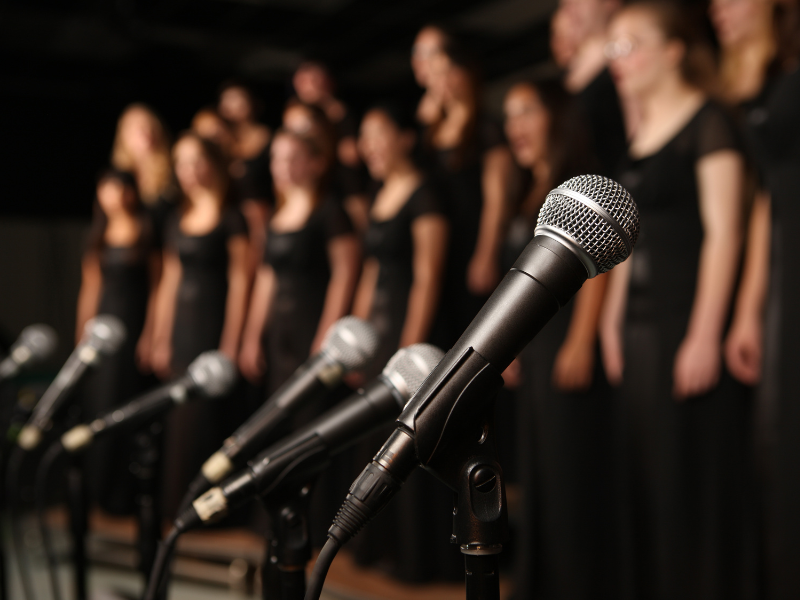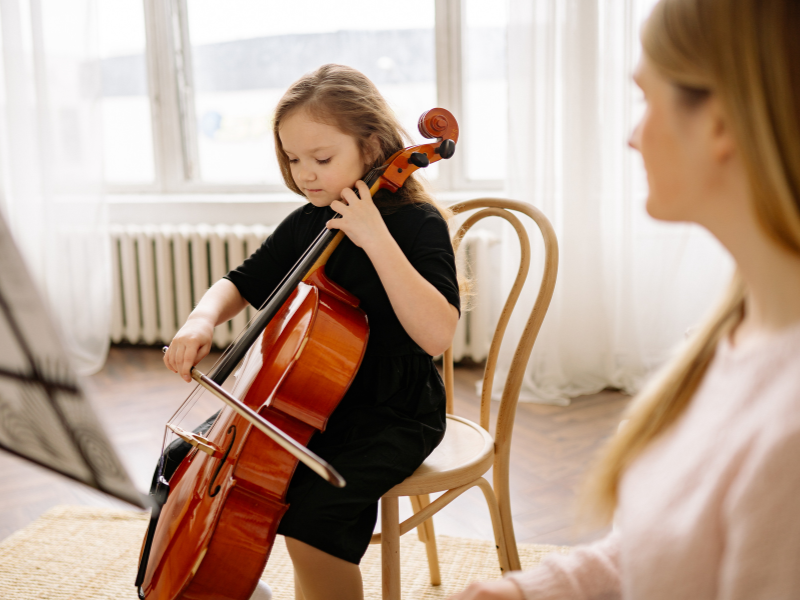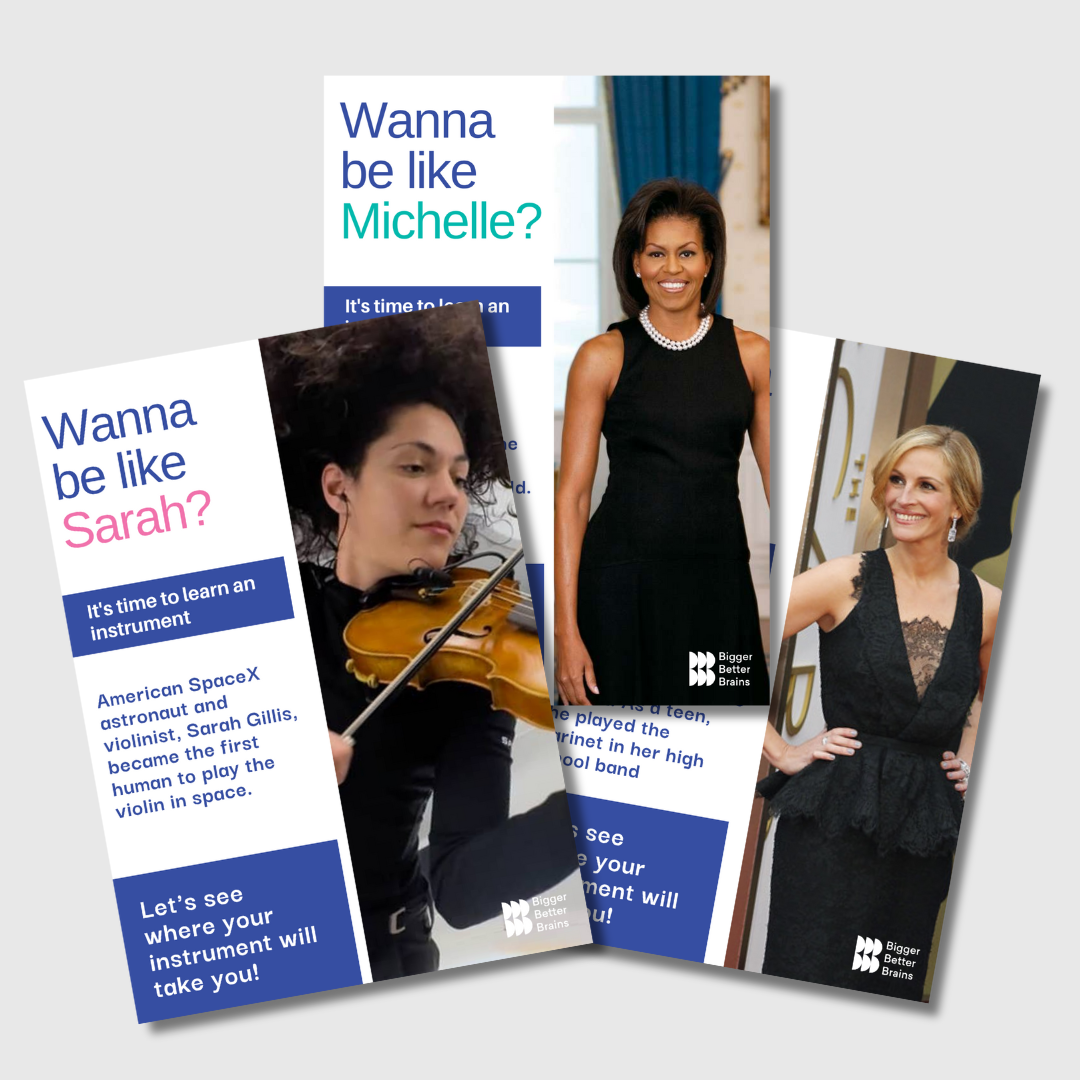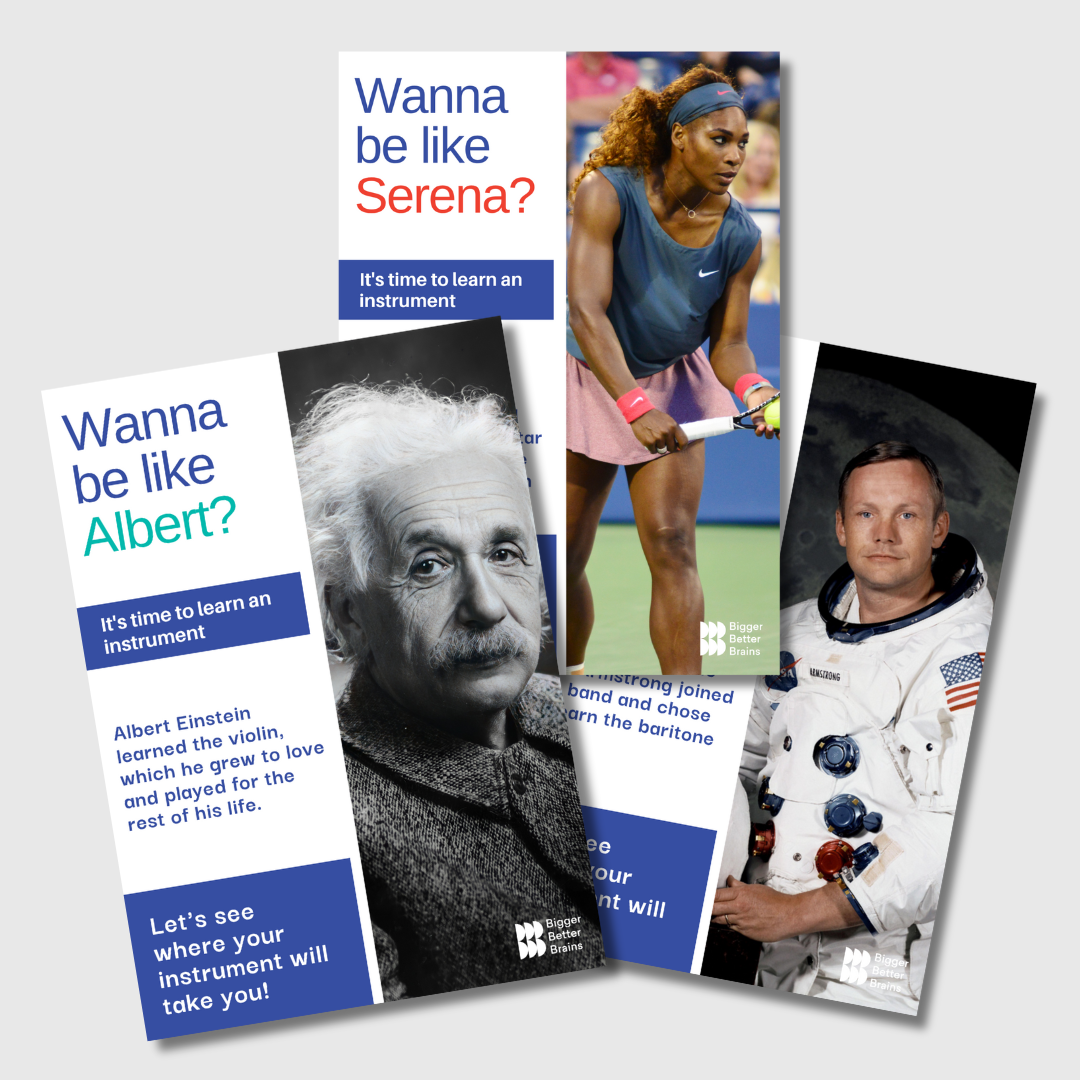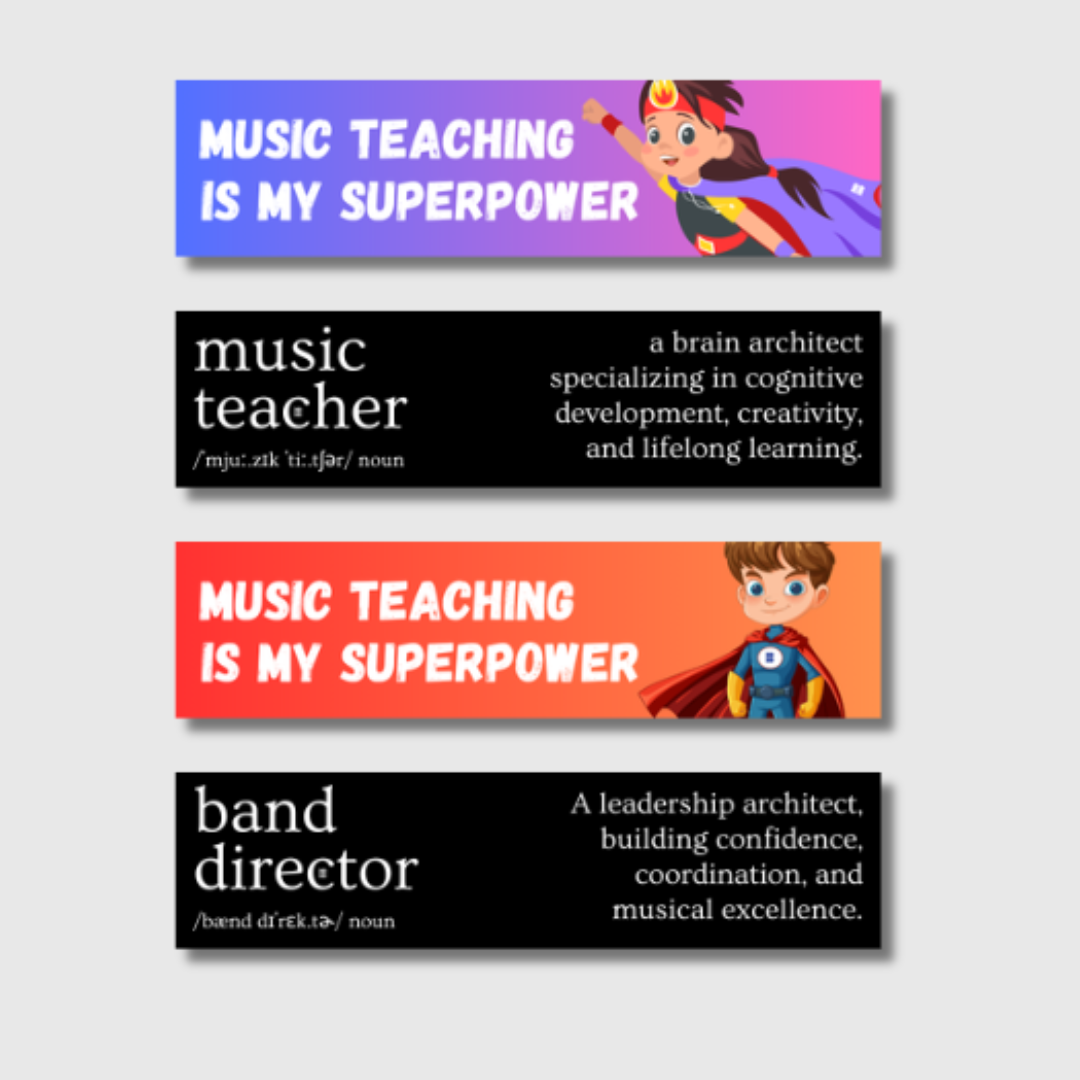
Research Updates

Here at Bigger Better Brains we believe that through educating yourself, you can then educate and affect positive change in your community.
With all of the research in the field of neuromusical science, our BBB Research section serves as a content hub for you. We regularly share findings and break down the latest research to educate and inspire discussion. We hope you enjoy this page on our website and share BBB news with your colleagues, parents and students.
Rhythm and dyslexia
Have you ever wondered what the connection between music and dyslexia might be? Researchers in Italy have provided a good description of the connection.
Helping ADHD students through music learning
This summary could be very helpful for understanding the learning challenges faced by ADHD students in your music ensemble or classroom and also give you ideas on specific activities for focus or to help improve their skills.
Music learning is a full brain workout!
The different types of connectivity are ultimately what makes every human unique. For children and adults with autism, it has been identified that the auditory and visual areas of their brains are highly connected.
Neural Biomarkers for Dyslexia, ADHD, and ADD
The researchers built on top of the research that found that music learning could improve these “traffic black spots”. Hence, they used a music learning intervention to see if they could track changes in the auditory cortex and hemispheric activation in children with Dyslexia, ADHD and ADD.
Rhythm can predict risk of language disorders
Here is a fascinating new theoretical paper about the relationship between rhythm and language abilities. A theoretical study is one that brings together all the relevant current research and puts forward a theory of, in this case, how two concepts may be connected.
Dyslexia, beta waves and rhythm processing
Dyslexia, beta waves and rhythm processing – that is a mouthful of tricky words. But in this new study, they are all connected and could reveal new understandings about the brain mechanisms that cause dyslexia.
Can singing in a choir benefit you or your community?
Group singing scientifically strengthens a community! “You hear people say all the time, ‘Oh, I can’t sing’ or ‘I’m not good enough to sing,’ and I really think that’s a shame. It goes against our evolutionary history.”
People who move together like each other more
This could be why music festivals seem to be going from strength to strength, we are just finding ways to like each other more.
Could clapping along with the music at a school concert be a form of advocacy?
In this new documentary film from the LiveLab at McMaster University in Canada, PhD researcher Dana Swarbrick created an experiment to explore how audience participation changes the impact of a concert experience.
Musical activities improve social communication skills for autistic children
In this study at the University of Montreal, 51 children with ASD ages 6 to 12 were randomly assigned to participate in a clinical trial involving three months of either a music-based, or a play therapy intervention.
Make your brain more efficient
How efficiently is your brain working today? Music learning trains the brain to use fewer brain resources when compared with non-musically trained people (and in this case those who are also bilingual).
Get your dopamine flowing with music!
Most people enjoy listening to music, but some people do not. For some, music just does not do much; either emotionally or cognitively. Studies around how people experience music can help us understand the mechanisms behind the enjoyment of music.








